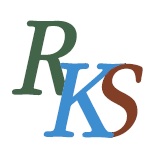 ISSN : 1229-0076
ISSN : 1229-0076
15th century Korean Grammar from a Viewpoint of Linguistic Typology and Historical Grammar
Abstract
Historically. grammatical studies of 15th century Korean have been done mainly from an internal perspective. Through these efforts, many linguistic facts have been uncovered, but for future advancement, an external perspective is also needed. Linguistic typology and diachronic studies can provide such an external perspective. Linguistic typology can help describe more precisely the tenseaspect system of 15th century Korean, functions of tense-aspect markers, and alternation patterns of morphemes by transitivity. Sino-Korean materials of the old Korean period can help explain some peculiar uses of the prefinal ending “-nʌ -.”
- keywords
- linguistic typology, grammatical history, Sino-Korean material, tense, aspect, transitivity, permanence, perfective, imperfective, perfect, resultative, alternation, allomorphy
참고문헌
Choi, Dongju. 2015. Guk-eo sisangchegye ui tongsijeok byeonhwa 국어시상체계의 통시적 변화. Vol. 27 of Guk-eohak chongseo 국어학총서. Seoul:Taehaksa.
Ito, Hideto. 2009. “Jungse Hanguk-eo ui sije wa sang e daehayeo: Worinsekbo gwon 1, 2 jimun ui yongrye bunseok” 중세 한국어의 시제와 상에 대하여:『월인석보』 권 1, 2 지문의 용례 분석. Hyeongtaeron 형태론 11 (2): 407-24.
Ko, Young-jin. 2007. “Jejudo bangeon ui hyengyongsa e natana neun du gaji hyeonje sije e daehayeo” 제주도 방언의 형용사에 나타나는 두 가지 「현재시제」에 대하여. Hangeul 한글 275: 77-106.
Ko, Youngkeun. 1980. “Jungse-eo ui eomi hwalyong e natana neun geo/eo uigyoche” 중세어의 어미 활용에 나타나는 ‘거/어’의 교체. Gukeohak 국어학 9:55-99.
Lee, Hyeon-Hee. 1995. “Sa wa za” 沙와 . Hanil eohak nonchong (Namhak I Jong-chel seonsaeng hoegap ginyeom nonchong) 한일어학논총 (남학 이종철선생 회갑기념논총). Seoul: Gukhakjaryowon.
Lee, Sanggeum. 2009. “Jungse Hanguk-eo hyengyongsa wa –nʌ - ui tonghap gwa gwanryeondoen myeot munje” 중세 한국어 형용사와 --의 통합과 관련된 몇 문제. Unpublished paper.
Park, Jinho. 2018. “Seoneomal eomi –nʌ - wa –nu- e daehan munbeopjeok gochal: chajapyogi wa ui gwanryeonseong eul jungsim euro” 선어말어미-- 와 –누-에 대한 문법적 고찰: 차자표기와의 관련성을 중심으로. Paper presented at the 54th Conference of the Society for Gugyeol, Soongsil University, Seoul, February 12.
- 다운로드 수
- 조회수
- 0KCI 피인용수
- 0WOS 피인용수

